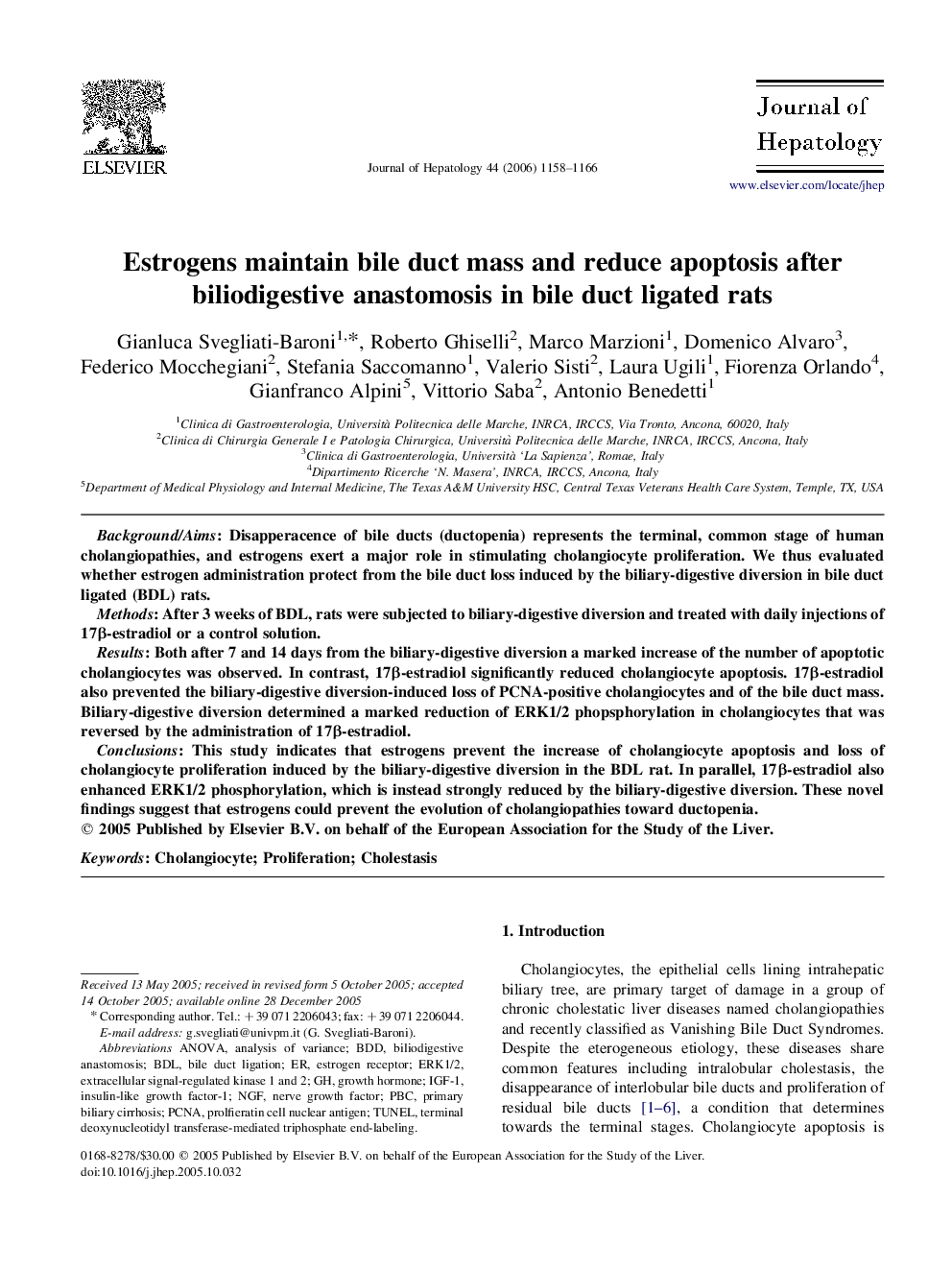| Article ID | Journal | Published Year | Pages | File Type |
|---|---|---|---|---|
| 3315627 | Journal of Hepatology | 2006 | 9 Pages |
Background/AimsDisapperacence of bile ducts (ductopenia) represents the terminal, common stage of human cholangiopathies, and estrogens exert a major role in stimulating cholangiocyte proliferation. We thus evaluated whether estrogen administration protect from the bile duct loss induced by the biliary-digestive diversion in bile duct ligated (BDL) rats.MethodsAfter 3 weeks of BDL, rats were subjected to biliary-digestive diversion and treated with daily injections of 17β-estradiol or a control solution.ResultsBoth after 7 and 14 days from the biliary-digestive diversion a marked increase of the number of apoptotic cholangiocytes was observed. In contrast, 17β-estradiol significantly reduced cholangiocyte apoptosis. 17β-estradiol also prevented the biliary-digestive diversion-induced loss of PCNA-positive cholangiocytes and of the bile duct mass. Biliary-digestive diversion determined a marked reduction of ERK1/2 phopsphorylation in cholangiocytes that was reversed by the administration of 17β-estradiol.ConclusionsThis study indicates that estrogens prevent the increase of cholangiocyte apoptosis and loss of cholangiocyte proliferation induced by the biliary-digestive diversion in the BDL rat. In parallel, 17β-estradiol also enhanced ERK1/2 phosphorylation, which is instead strongly reduced by the biliary-digestive diversion. These novel findings suggest that estrogens could prevent the evolution of cholangiopathies toward ductopenia.
